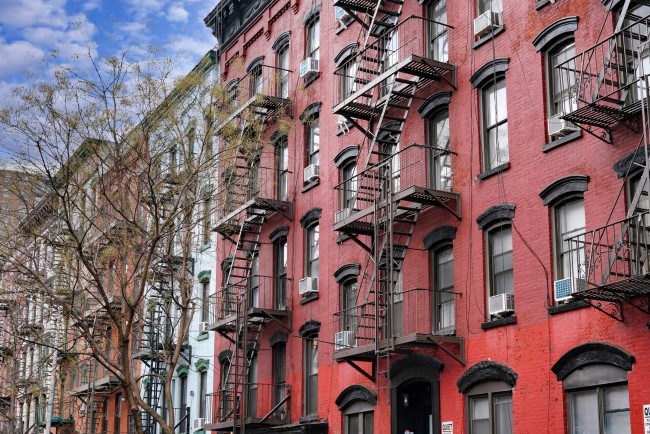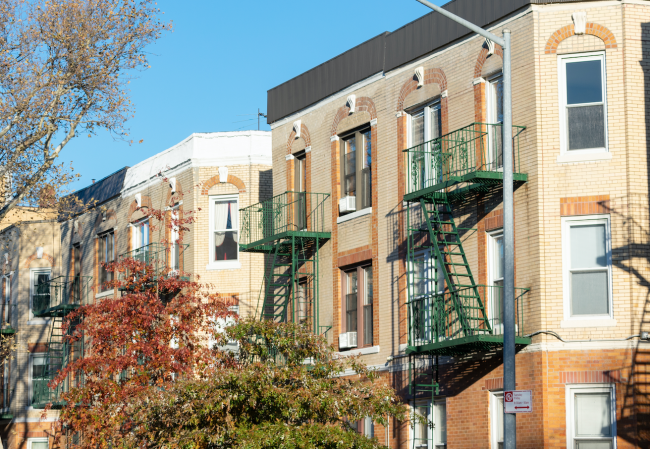If you are worried about being evicted, read this

You need to understand how the eviction process has changed and what you can expect.
iStock
New Yorkers who lost their jobs during the pandemic and are behind on their rent are panicking now that a moratorium on evictions during the coronavirus pandemic has expired. The New York Times reports that 50,000 to 60,000 cases could be filed in NYC's housing courts. If you're worried about being evicted you should know that nothing can happen until at least July 6th and even that date might be pushed back again.
There's more you should know: The public health crisis has prompted some changes to the eviction process and your landlord must follow specific steps in order to head in that direction. You may also be eligible for an extension in answering a petition. Tenant attorneys expect more information in the coming days and weeks. At the same time, lawmakers are pushing for additional legislative protections for tenants who have lost income as a result of the pandemic.
Rent laws passed last year slowed down the eviction process and the only cases that can currently go ahead are those where a virtual settlement conference is already scheduled and both parties are represented by an attorney. These would be evictions that began before coronavirus cases began to spike in NYC and the focus is on settlement—so judges would not order evictions.
Meanwhile there is pressure mounting for Governor Andrew Cuomo to enact the NYS Tenant Safe Harbor Act. This legislation would prevent landlords from evicting anyone for non-payment if they lost income while the city was on pause and New Yorkers were asked to stay home to prevent the virus spreading. (Tenants may still be asked to pay that rent, possibly with help from the government, but they cannot be evicted because of missed payments during that time.)
[Editor's note: The NYS Tenant Safe Harbor Act is now law. In a statement The Legal Aid Society commends the act's sponsors, saying, "all low-income New Yorkers who were at the brink of losing their homes and facing homelessness will now have more time to recover and get back on their feet after experiencing the economic disaster brought on by the coronavirus outbreak."]
A blanket eviction ban, put in place as coronavirus cases surged in New York in March, expired on June 20th but hearings have been postponed until at least July 6th. Another eviction moratorium—protecting those affected by coronavirus—is set to expire in mid-August and now that housing courts are reopening there have been concerns that filling the courts with crowds of people is just too dangerous during the pandemic.
As a result the way evictions take place have been changed. Here's how:
The process still begins with a notice of petition and petition, (two separate documents) but your landlord can no longer hand you this paperwork in person. It must be filed by mail or through the court's electronic filing system (NYSCEF). The notice is the paperwork telling you the landlord is suing you and what your next steps should be and the petition tells you what you’ve done wrong.
In addition, the petition must include two additional documents—one states that the petitioner has reviewed all the legal restrictions about new eviction proceedings and still believes there is a reason to proceed, the other gives the tenant information that they may be eligible for extensions when it comes to answering the petition and also provides resources for them to get information on their rights.
There are different kinds of eviction: In a holdover case, the landlord is bringing a case against you, not just for money, but for possession of the apartment. In a non-payment case, the landlord is looking for payment and if you can pay what's due, you can likely stay.
Answering a petition is complicated so it's important to get legal advice if you can. Tenants who earn an income that is 200 percent below the federal poverty guideline are guaranteed a right to counsel in NYC. That means a single person who earns less than $25,520 a year or a family of four earning less than $52,400 can get legal help in this way.
As we approach the July 6th expiration of the blanket ban on evictions as well as the moratorium that expires in August, the court is expected to give more details about the processing of eviction cases. In addition, the electronic filing system is set to expand its capabilities in the coming months.
As always, communication is key—tenant attorneys say speaking to your landlord about your situation is important. Keep in mind that it is illegal for a landlord to discriminate against you if you've tested positive for coronavirus. It's also against the law for them to change the locks on your apartment without a court order.
You Might Also Like



























